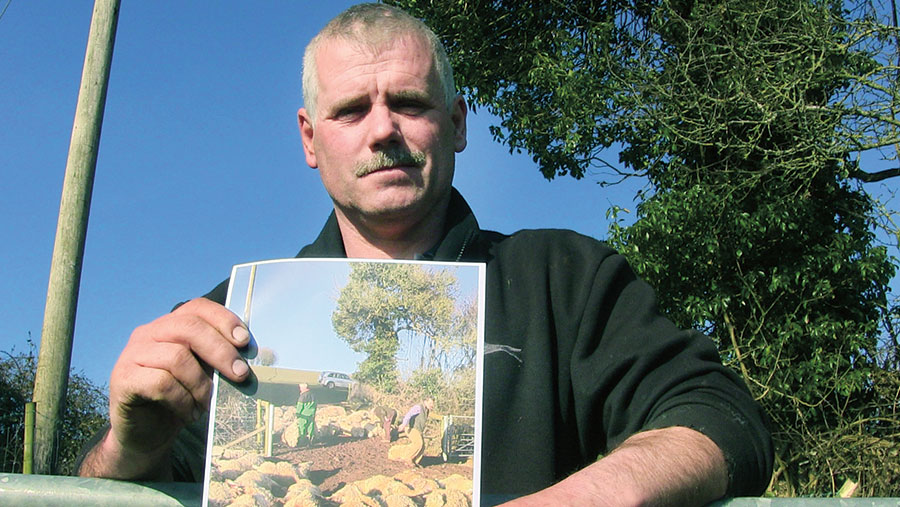News review 2016: Sheep worrying remains unacceptably high

Sheep worrying remained a constant thorn in the side of sheep farmers throughout 2016, with hundreds of reports of terrible attacks on livestock by out-of-control dogs.
Despite numerous media campaigns urging dog owners to keep their pets on leads around livestock, incidents of livestock worrying, especially sheep worrying, remain unacceptably high.
In 2016, West Sussex sheep farmer Gordon Wyeth suffered what is widely considered to be the worst case of sheep worrying ever recorded on a UK farm.
See also: Your legal rights on shooting dogs on your land
On the afternoon of Monday 7 March, Mr Wyeth made the horrific discovery of 116 sheep, worth about £17,000, lying dead in a field on the West Dean Estate, near Chichester.
The sheep, many of them in lamb, had been herded into a tight group against a fence and gate bordering woodland, where they had panicked and had either died from shock or by being crushed in the flock.
Although there were no signs of any of the sheep being savaged, Sussex Police said they were “100% certain” that their deaths were brought about by dogs.
An online JustGiving campaign raised £3,208 to help Mr Wyeth pay for the disposal of the sheep killed in the suspected dog attack.
SheepWatch UK campaign
In February, SheepWatch UK was launched to help people work together to reduce the number of dog attacks on sheep.
Terena Plowright, founder of SheepWatch UK, said more than 1,200 sheep had been killed in sheep-worrying incidents in 2016.
She added: “Sheep worrying and attacks made the headlines throughout 2016 and people have been saddened by reports of pet dogs being shot and the awful injuries suffered by sheep left to suffer in fields across the UK.
“The reports have raised the profile of sheep worrying, but somehow they don’t seem to be reducing the numbers of incidents. A different method of controlling the situation needs investigating.”
In November, Police Scotland launched a month-long campaign to raise awareness among dog owners about the devastating effects of livestock worrying.
It followed a three-month campaign during this year’s lambing season, which saw reports of livestock worrying increase by 55% in Scotland.
